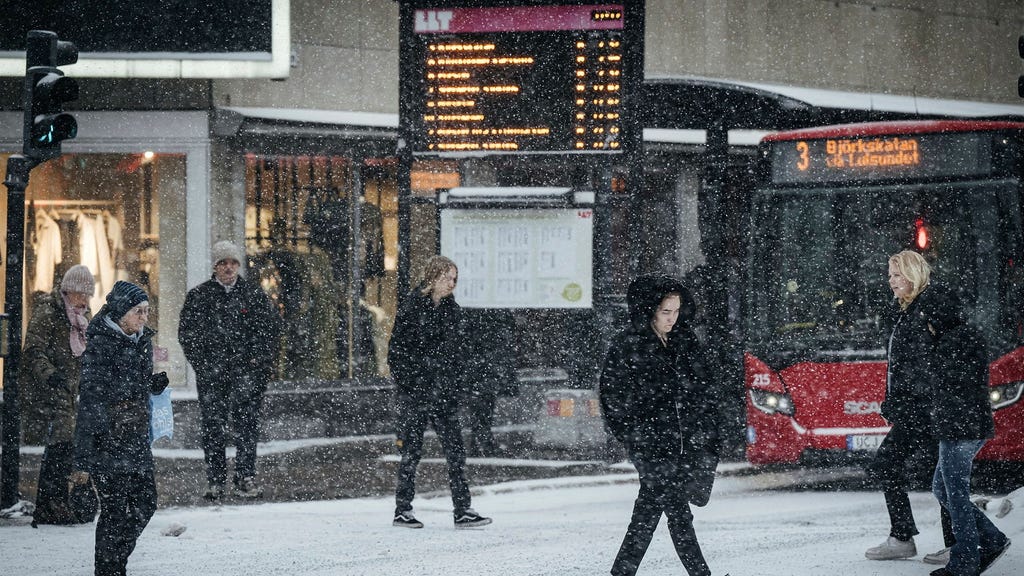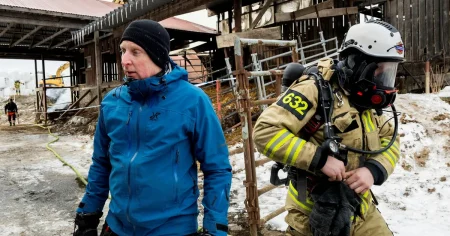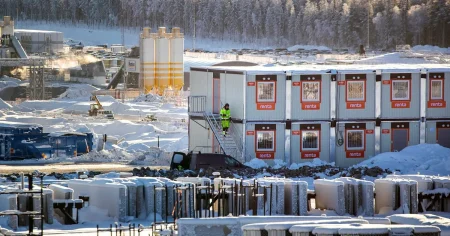A severe winter storm, characterized by heavy snowfall and strong winds, is forecast to impact several regions of Sweden, prompting orange weather warnings from the Swedish Meteorological and Hydrological Institute (SMHI). Southern Norrland, Jämtland, Dalsland, and western Svealand are expected to bear the brunt of the storm, with snowfall accumulations potentially reaching 15-30 centimeters, and even higher in localized areas. The storm is anticipated to commence Monday afternoon and persist for approximately 24 hours, creating hazardous travel conditions due to drifting snow, reduced visibility, and slippery roads. The SMHI strongly advises against unnecessary travel and urges preparedness for potential standstills if venturing out.
The impending storm carries a significant risk of widespread disruption, affecting transport networks, power supply, and telecommunications. Train delays and cancellations are highly probable, along with power outages and disruptions to telephone services. Emergency response efforts and snow removal operations are also expected to face challenges due to the severe weather conditions. The Swedish Transport Administration emphasizes the importance of heeding the weather warnings, assessing the potential impact on individual travel plans, and prioritizing safety for oneself and fellow road users. Even after the official warning period, drivers are cautioned about the possibility of treacherous road conditions and advised against taking unnecessary risks.
While the orange warnings highlight the most severely affected areas, several yellow warnings have also been issued for southern Sweden, including the Stockholm region. The capital is bracing for 7-15 centimeters of snow, which is predicted to transition to rain by Monday evening. The recent past has already demonstrated the vulnerability of transport infrastructure to winter weather. Just earlier in the week, ice formation on a power line in Laxå led to significant disruptions to train services between Stockholm and Gothenburg, causing cancellations for two consecutive days. This incident underscores the potential for even seemingly localized weather events to have cascading effects on wider transport networks.
Adding to the weather-related challenges, the northernmost part of Norrland is experiencing extreme cold, with temperatures plummeting to -30 degrees Celsius. These frigid conditions have forced the cancellation of train services on several routes between Saturday and Monday. The decision to halt operations in such extreme cold stems from concerns about the safety and reliability of the trains and infrastructure under such harsh conditions. This combination of heavy snowfall in central and southern regions and extreme cold in the north presents a complex challenge for both transport operators and the public.
The impact of the storm extends beyond immediate travel disruptions. The combination of heavy snow, strong winds, and potential power outages can create significant challenges for residents in affected areas. Essential services may be disrupted, and individuals are advised to take precautions to ensure their safety and well-being during the storm. These precautions may include stocking up on essential supplies, preparing for potential power outages, and staying informed about weather updates and emergency instructions. The severity of the warnings issued by SMHI underscores the need for preparedness and vigilance in the face of this impending winter storm.
The convergence of heavy snowfall, strong winds, and extreme cold across different regions of Sweden highlights the significant impact of winter weather on the country’s infrastructure and daily life. The warnings issued by SMHI and the advice provided by the transport authorities emphasize the importance of preparedness, caution, and prioritizing safety. The recent disruptions caused by ice formation on power lines serve as a reminder of the vulnerability of transport networks to even seemingly minor weather events. The combined challenges of snow, wind, and extreme cold underscore the need for robust infrastructure and effective communication to mitigate the impact of such weather events on the population.














